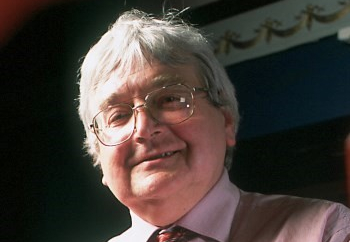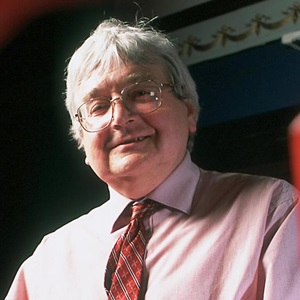


The last two years have seen much change in the way the world works, with the COVID-19 pandemic causing an impact on health and healthcare, economies and a number of social factors generally.
Scientists and science have made a huge contribution to dealing with the pandemic – from prevention to diagnosis to treatment.
Collaborating internationally has never been more important. Different bodies have worked together at an international level, bringing a range of different types of expertise together, to help address some of the critical challenges countries face.
Organisations such as the InterAcademy Partnership (IAP) and the International Science Council (ISC) have played their part in this. As co-chair and co-president of IAP, I am impressed by the work these organisations have done.
Both work internationally and inclusively with others all around the world. IAP is an excellent vehicle for putting out statements on behalf of the world’s science academies (see more below). ISC has the financial resource and a track record of research programmes, with a membership going beyond the science academies.
Since the beginning of the pandemic, IAP issued five communiqués related to the crisis: the IAP Communiqué on the COVID-19 pandemic, the IAP Communiqué on Green Recovery, the IAP Communiqué on the Development and Distribution of Vaccines against COVID-19, the IAP Communiqué on Reducing the impact of COVID-19 on inequalities in higher education: A call for action to the international community and the IAP Communiqué on Strengthening research on COVID-19 during the pandemic.
IAP also launched the IAP COVID-19 Expert Group, charged with responding to inquiries routed through academies related to the ongoing COVID-19 pandemic across a broad range of health, social, environmental and other direct and indirect consequences. During 2020 and 2021, the Expert Group responded to queries from the Dominican Republic, Cuba and Australia, and contributed to other IAP initiatives.
In June 2020, a group of alumni of the IAP Young Physician Leaders (YPL) Programme hosted a Global Ward Round. The engagement centered around country responses to COVID-19 and presentations were made by YPLs from Ghana, India, Italy, Mongolia, Morocco, Nepal, Philippines, South Africa and Thailand. A second Global Ward Round took place in February 2021.
In March 2021, IAP organized the IAP Global Webinar on Countering Vaccine Hesitancy, designed to help academies prepare for national vaccination efforts. A report based on the webinar will shortly be published.
During 2021 World Immunization Week, IAP released an infographic to shed some light on the different types of COVID-19 vaccines, how they are developed, and how they work, and 5 bite-size videos that present aspects of vaccine science, regulation and the ‘infodemic’ in manageable nuggets of information.
In addition, many IAP member academies around the world are playing their own part in national or regional initiatives – helping to ensure that trustworthy and credible information is reaching as many people as possible, much of it in local languages. IAP has collated this information, available here alongside an update on all IAP’s COVID-19 related activities.
Furthermore, the IAP Science Education Programme (SEP) together with its partners published ‘COVID-19! How Can I Protect Myself and Others?’, a new COVID-19 rapid-response guide for youth that has already made it all of the way to students in Mexico, and ‘Vaccines! How can we use science to help our community make decisions about vaccines?’.
IAP has also recently published a communiqué on data sharing during international health emergencies, which has arisen from work done by the S7 (S7 stands for “Science 7” – a grouping of the science academies from the G7 nations.
The ISC has also done much COVID-19 related work over the last couple of years, including establishing a COVID-19 Scenarios Project launched in April 2020 in partnership with the World Health Organisationm (WHO) WHO and the United Nations Office for Disaster Risk Reduction (UNDRR), and a COVID-19 Global Science Portal which provides an overview of responses to the COVID-19 pandemic by the ISC community and wider network. The portal received over 100 responses from ISC Members and partners, and served to amplify and connect initiatives from the scientific community around the world. It has been viewed over 34,000 times.
The COVID-19 Scenarios Project, which looks at medium to longer-term outcomes and responses by governments to the COVID-19 pandemic, and involves the UNDRR and WHO as observers, will publish its findings in the first half of 2022.
Thanks to its role as convenor of the S&T Major Group in the UN (together with the World Federation of Engineering Organisations), the ISC works to secure a mandate for science at the UN and integrate science in major global policy processes. In 2021, the Major Group’s position paper focused on ways to advance progress on the SDGs throughout the Decade of Action while living with and through the COVID-19 pandemic, and underscored the urgent need to address existing scientific evidence and move from plans to action.
Despite the pandemic touching all our lives, IAP’s work has not just focused on COVID-19, but other issues of global importance too. For example, last year IAP issued a Communiqué on Net Zero, and a Statement on Climate Change and Biodiversity, which developed from S7 statements (issued in March 2021: Creating a net zero climate resilient world, tackling biodiversity loss, and improving the use of data in pandemics). And two regional reports (from Asia and the Americas) from our regional-to-global project on Climate Change and Health have now been published. The report from Africa will be published shortly, followed by the global synthesis report and a dissemination campaign.
The ISC has also contributed to climate and biodiversity discussions through its work on global sustainability. The ISC is the co-sponsor of some of the world’s largest and most impactful research programmes and scientific committees on sustainability and environmental change. In addition, the ISC has published in the past two years major reports on Rethinking Human Development (in collaboration with UNDP) and on Hazards Definition and Classification (in collaboration with UNDRR). In 2021 the ISC also initiated the Transform 21 global science platform, working together with the incoming UK Presidency of COP26 to curate material and events from the scientific community related to COP26. It also has a programme of work on academic freedom, led by the ISC Committee on Freedom and Responsibility in Science (CFRS).
IAP and ISC have worked together to support and amplify international scientific collaboration throughout the pandemic, and to make the case for strengthened collaboration to deal with other global challenges.
Together with The World Academy of Sciences (UNESCO-TWAS), both organisations are currently involved in Science in Exile (SiE) , an initiative that carries out advocacy, support, networking and research activities together with at-risk, displaced and refugee scientists and stakeholders globally, including international organizations, universities, research institutions and science academies, NGOs and diaspora groups.
IAP and ISC also worked with GenderInSITE on a study reporting on the inclusion and participation of women in over 120 science organizations. The report sets out several recommendations for furthering gender representation and equality globally, such as developing and maintaining a central repository of gender-related policies and actions as well as working intensively with disciplinary associations where improvement is needed in women’s representation. IAP and ISC are looking into how they can work together to implement these recommendations.
IAP and ISC will also continue to work on other issues of global importance, both separately and together, to support each other’s advocacy at local, regional and global levels.
Over the last two weeks, the global community has been shocked by the invasion of Ukraine. Both IAP and ISC have issued statements calling for the violence to cease and for the scientific community to unite in a call for dialogue.
